Asylum seekers and refugees continue to face racism, isolation and discrimination in towns across the United Kingdom, with many reporting incidents of hate crimes and physical attacks.
Following the attack against Reker Ahmed in Croydon on March 31, Iranian refugees and asylum seekers say they deal with a range of issues when arriving in the country and when attempting to integrate into their new communities.
The attack received ample media coverage and focused attention on the situation for some refugees and asylum seekers in the UK. But violence and threats against them are not uncommon, and not all attacks are reported.
“The very first year of living in the UK, a group of six or seven people attacked me and my friend after they heard us speaking in the Kurdish language,” says Sasan Ahmadi, a 23-year-old Kurdish-Iranian refugee living in Newcastle. He came to the UK as an asylum seeker at the age of 16. In 2012, he was the victim of a racially-motivated attack. “My English was not good at that time, but [I could understand] they were shouting at us, ‘this is England and you must speak English, you stupid Muslim!’, then they attacked us, which left my head needing eight stitches.” In another recent unprovoked attack, 23-year-old Syrian refugee Ibrahim Ismail was stabbed to death in Birmingham in December 2016.
The Sighthill area of Glasgow has seen an increase in attacks on refugees since the unprovoked murder of 25-year-old Turkish Kurd Firsat Dag on August 5, 2001. Iranian asylum seeker Davoud Rasul Naseri, 22, was stabbed as he took out his rubbish just two days later, on the evening of August 7, 2001.
One asylum seeker who used to live in Middlesbrough told me people had scrawled “Go back home” outside his home; another asylum seeker in Middlesbrough reported that people had thrown dead rats into his garden. He said that their house accommodated four to five people at a time, but had stood out from other houses on the street, which he felt added to their vulnerability. Other refugees I spoke to in Middlesbrough reported that bricks with racist slurs attached to them were thrown through their windows.
“The [Croydon] attack was a horrid incident that can cause phobias and insecurity in communities,” said a 25-year-old Kurdish-Iranian refugee who asked to remain anonymous. She added that there was a variety of ways these fears could manifest themselves, including anger and a withdrawal from the communities in which they live.
A Recent History of Migration, and a Pattern of Abuse
Since the Islamic revolution in 1979, as many as five million Iranian citizens have left the country and migrated mostly to the US and Europe, with the highest number fleeing between 1979 and 1985. About half a million Iranian migrants live in Europe today. The number of Iranian refugees rose again after the 2009 contested presidential election and the crackdown that followed. Refugees reported needing to leave to escape the country’s repressive regime and the restrictions it places on their rights, including freedom of expression and religious freedom (as well as the right not to have a religious belief), and because of strict codes, gender inequality, including mandatory segregation and unjust divorce laws, and continuing economic decline.
But when they arrive in the UK or other Western countries, these Iranian refugees are often met with a new set of prejudices and new forms of repression, made worse by a rise in anti-Muslim prejudice that encourages negative stereotypes of Middle Eastern refugees. In addition, when the UK’s Home Office houses asylum seekers in rural locations and areas of cities and towns that have not traditionally been home to multi-cultural communities, or in areas lacking economic stability, it can mean the refugee is an obvious “outsider,” making them easy targets.
Seventeen-year-old Reker Ahmed came to the UK to find sanctuary only months before the attack. That Friday night, Ahmed was with two of his friends, Dilshad Mohammed and Hamo Mustafa, at a bus station near the Goat pub in Croydon, waiting for a bus back to his legal guardian’s home. A large group approached the three young men, and, after finding out he was an asylum seeker, attacked him. Mohammed and Mustafa managed to escape with only minor injuries, but Ahmed suffered a fractured eye socket, a fractured spine and a blood clot on the brain. On Monday, April 3, he was moved from intensive care to a mainstream ward in London’s King’s College Hospital.
“Hate crime has no place in London”
The Metropolitan Police estimated that the number of people involved in the attack was between 20 and 30 people, within the age range of 15 and 24. The police said 16 people had so far been arrested “on suspicion of offences including attempted murder and violent disorder.”
After the attack, Sadiq Khan, the mayor of London, tweeted: “Hate crime has no place in London...We don’t just accept our differences, we embrace and celebrate them. Our communities will not be divided by those who seek to show hate.”
And residents came together to condemn what had happened. Graffiti in support of Reker Ahmed and refugees sprung up in various parts of Croydon. Speaking to the BBC about his hospital visit with Ahmed, Zinar Demeni from the Kurdish Solidarity Campaign said, "I told him that many British people in the UK are behind you, they support you, and they condemn this attack. When he heard this, and heard how many people were supporting him, this put a huge smile on his face.” Speaking to the Financial Times, Demeni also stressed concerns over Brexit and its possible influence on the increase in anti–foreigner rhetoric.
Others donated to a Justgiving campaign launched to support Ahmed. The page raised more than £57,000. “We want to help him overcome this horrible ordeal and show that he is loved and welcome here in the United Kingdom,” the page said. People also used the hashtags #justiceforreker and #rekerahmed to show their support and condemn the attack. One Twitter handle created by Robbie Lockie, ‘@activismisnow’, started a petition online demanding that Prime Minister Theresa May grant Reker Ahmed immediate citizenship following his ordeal.
What's the process?
Asylum seekers entering the UK follow strict procedures, and many feel overwhelmed by what it takes to become a legal refugee. Upon entry, screening interviews include finger-printing and detailed accounts of circumstances. Individuals are sent to hostels temporarily until they receive a Home Office-issued letter instructing them to attend an interview. The waiting time can be as little as two weeks, but in some exceptional circumstances, asylum seekers have had to wait over 10 years to complete this process. After the interview, the successful applicant receives a form confirming refugee status, and a residency card. Otherwise, he or she has 21 days to register a court appeal; if the appeal is unsuccessful, the individual has 24 days to leave the country. But often, the Home Office does not come to an immediate decision, creating more vulnerability, as applicants are not given the full rights that citizens enjoy, and are not entitled to receive any financial assistance. Failed applicants are also not allowed to take up employment. In this desperate situation, asylum seekers may be exploited, and persuaded to take on illegal work from employers who can pay as little as £2.00 an hour.
The Refugee Council, Refugee Action and other organizations work to ease the problems asylum seekers and refugees face, including by offering resettlement programs, counseling services and creative workshops. While it is comforting to know these charities exist and to see the overwhelming condemnation of violence against Reker Ahmed and other asylum seekers — especially given the current political and social climate — it is clear that there is a lot more work to do ensure people in the UK live together in mutual respect and understanding.
visit the accountability section
In this section of Iran Wire, you can contact the officials and launch your campaign for various problems




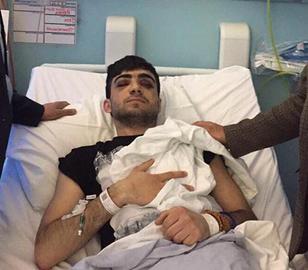
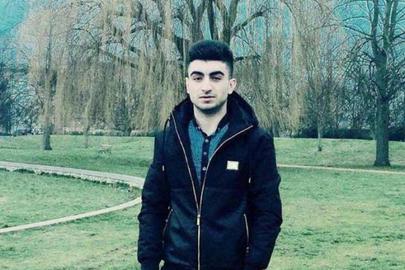
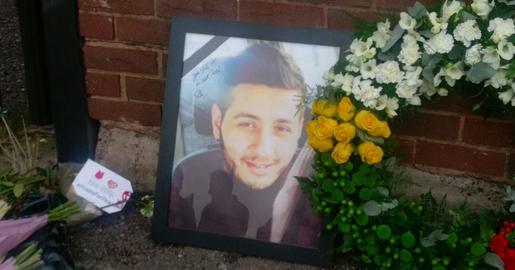
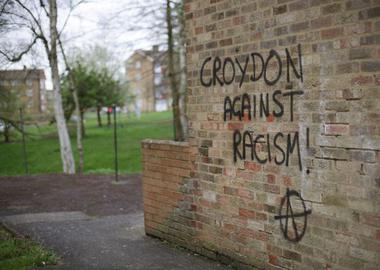



















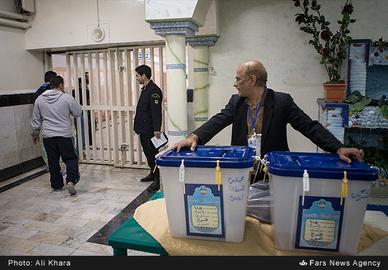
comments